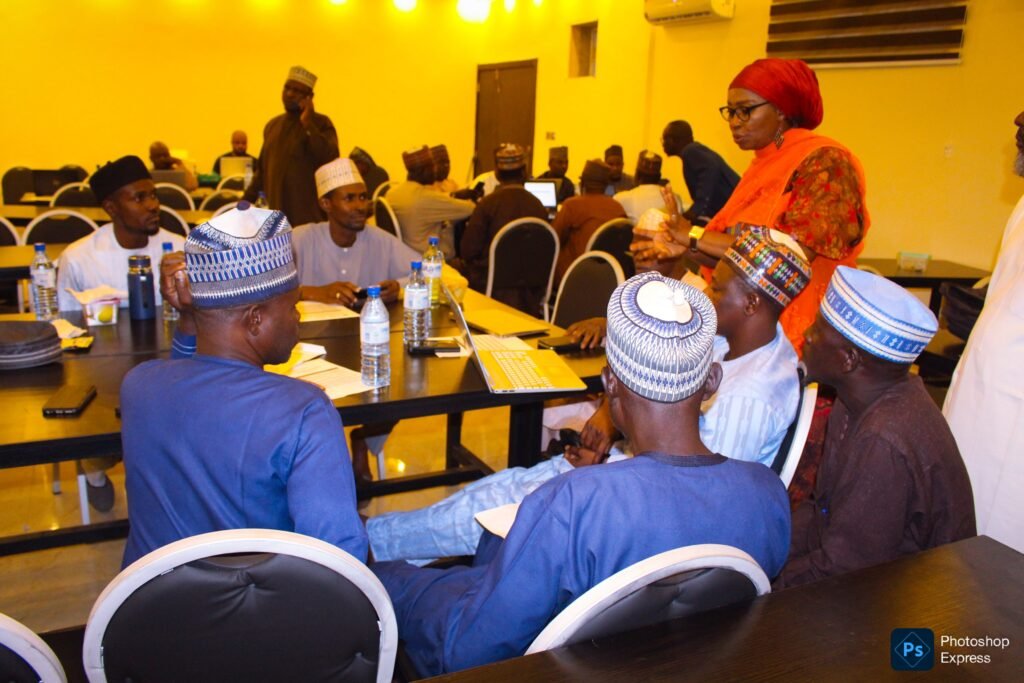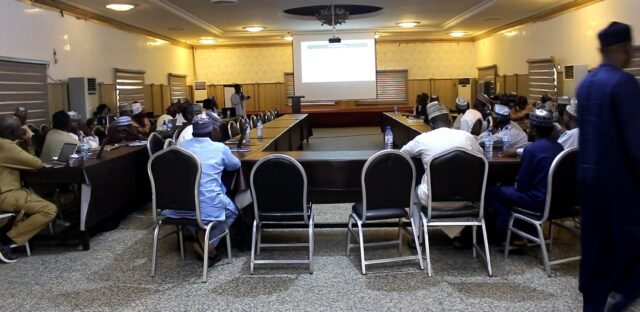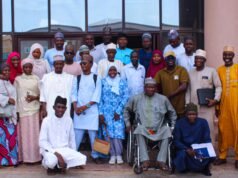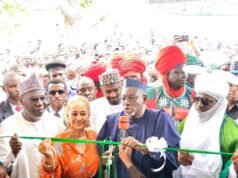By Ali Rabiu Ali Jigawa
The Jigawa State Government, in collaboration with the Partnership for Agile Governance & Climate Change Engagement (PACE) and with support from UK International Development, has developed a comprehensive Climate Change Policy aimed at addressing the impacts of climate change and promoting sustainable development in the state.
The policy was developed during a 4-day development of implementation plan and result framework for climate change policy held at Tahir Guest Palace, Kano, from August 24th to 29th, 2025.
The policy outlines a framework for climate change mitigation and adaptation, focusing on reducing greenhouse gas emissions, enhancing resilience, and promoting sustainable land-use practices.

During his presentation, PACE consultant Jumobi Fashola said the objectives of the meeting were to implement adaptation and mitigation measures that promote low-carbon development, strengthen capacities and synergies within the state to implement climate change response, promote scientific research, technology, and innovations to address climate change challenges, reduce vulnerability of Jigawa indigenes to climate change impacts across all sectors, and mainstream gender, children, youth, and other vulnerable groups into all climate change interventions.
The expected outcomes include improved agricultural yield, increased resilience of farmers to climatic shocks, increased access to clean energy services for vulnerable communities, reduced vulnerability to climate change impacts across all sectors, and improved social, cultural, economic, and ecological resilience.
PACE team lead Muiz Adeniran, in his welcome address, said the policy would be implemented through a multi-stakeholder approach, involving government ministries, departments, and agencies, private sector, civil society organizations, and community groups. The state government would also collaborate with national and international organizations to access technical and financial resources for climate change interventions.
Adeniran stated that Jigawa State is highly vulnerable to climate change impacts, including extreme weather events such as floods and droughts, land degradation, and desertification. The state’s agricultural sector is particularly susceptible to climate variability, with shifting rainfall patterns and temperature changes affecting crop yields and food security.
In his presentation, PACE consultant Sunny Kulutuye said the policy framework outlines a comprehensive approach to addressing climate change, including mitigation strategies to reduce greenhouse gas emissions, adaptation strategies to enhance resilience and reduce vulnerability, capacity building and institutional strengthening, research and development, and climate finance and resource mobilization.
Commissioner of Power Engr. Dr. Surajo A. Musa, said Jigawa State is making significant strides in addressing climate change, aligning with several Sustainable Development Goals (SDGs). The state’s initiatives focus on environmental sustainability, economic growth, social well-being, and good governance. According to him, the state has implemented various projects to improve local air and water quality, promote urban greening, and protect biodiversity.
The Permanent Secretary, Ministry of Environment and Climate Change, Dr. Abdullahi Namadi, said climate change is a serious issue affecting all MDAs. Namadi assured that with this policy, the state government would have a backup for mitigating climate change issues, and the MDAs and PACE would look at it critically and include it in the 2026 Ministry of Environment budget.
The Permanent Secretary appreciated the efforts and support of PACE in developing the policy for the state to tackle climate change.
Governor Umar Namadi’s administration has shown commitment to environmental sustainability, including planting over 5,000 assorted trees to combat desertification and improve the ecosystem. The state’s initiatives serve as a model for other states to follow in addressing climate change.
The participants were drawn from various ministries, departments, and agencies, including civil society organizations, with a view to having representatives from all sectors responsible for addressing climate change issues in Jigawa State.
Skylink Multimedia reports that the Jigawa State Climate Change Policy is an important step towards addressing the impacts of climate change and promoting sustainable development in the state. With a comprehensive framework and multi-stakeholder approach, the policy aims to reduce vulnerability, enhance resilience, and promote low-carbon development in Jigawa State.











Ni Malumi ne ama bani da jari Ina da iyali mata na biyu